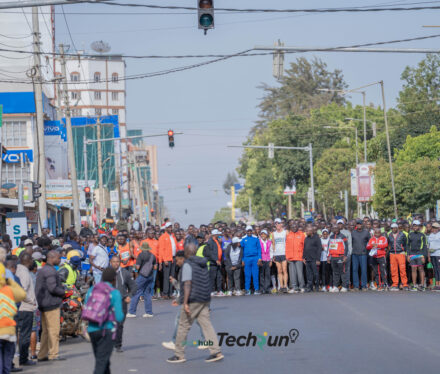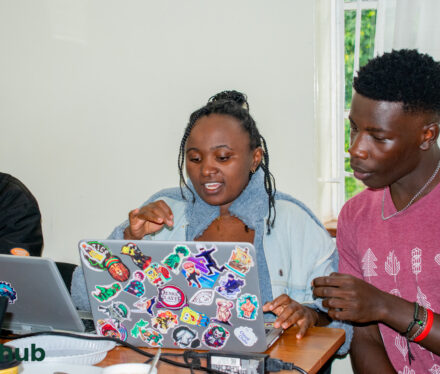Across Kenya, women and young people remain at the center of small-scale trade and entrepreneurship. From market stalls to digital platforms, they are powering local economies yet their access to affordable and fair financial services still lags behind their ambition. High borrowing costs, limited credit options, and persistent unemployment make it difficult to translate entrepreneurial energy into long-term success. Women, who own nearly half of Kenya’s micro and small enterprises, face a financing gap estimated at over KSh 300 billion, while youth unemployment remains above 13%. Many are forced to rely on informal savings groups or costly credit from shylocks, highlighting the urgent need for inclusive systems that reflect the scale of their contribution.
Progress in financial inclusion is undeniable, but uneven. Today, 84.8% of Kenyan adults use formal financial services, from banks and insurance to SACCOs and mobile money. Yet among youth (18–35 years), only 58% hold a formal savings account, while nearly half rely solely on mobile money. Gender parity also tells a mixed story. For every man working in Kenya’s banking sector, there are three women, but most remain in junior positions while men dominate leadership. In the insurance industry, the trend is reversed: more men work in the sector, but women hold a larger share of senior roles. These realities show both progress and persistent gaps in building inclusive financial leadership.
When it comes to entrepreneurship, women and youth are proving that they can drive financial innovation. Women’s growing participation is strengthening financial literacy and building resilience, while youth are embracing digital platforms to grow new ventures. The demand is clear, the digital rails are in place, and the momentum is strong. What remains is the business opportunity designing financial services that are relevant, affordable, and truly accessible.
Untapped opportunities in the informal sector
The informal economy made up of market traders, boda boda operators, salon owners, and artisans remains as Kenya’s economic backbone, accounting for 80% of new jobs outside agriculture. Yet these entrepreneurs often deal with irregular cash flows and are excluded from traditional credit systems. Many depend on shylocks and loan sharks. Here lies one of the biggest untapped opportunities: innovative financial services that use alternative data such as sales, inventory, or phone usage for credit scoring and risk evaluation. Localized peer-to-peer referencing can also unlock credit for traders, building trust and inclusion in ways formal institutions cannot.
Community finance models are also reshaping access. Table banking, popularly known as chamas, is one of the fastest-growing systems nationwide, with women making up 97% of members in Kenya. By mid-2023, almost half of Kenyan women were in a chama, circulating an estimated KSh 60–80 million annually. Supporting these groups with financial training, insurance, and digital tools to reduce fraud or default could multiply their impact and also create new business opportunities for startups.
Fraud control is another critical area. Kenya’s financial sector loses hundreds of millions each year to fraud, eroding trust and causing everyday people to lose hard-earned income. Entrepreneurs who design effective fraud prevention and protection tools have an opening to create both social and financial value.
At the county level, new opportunities are emerging through affordable credit and voucher programs, such as those in Nakuru and Kisumu. Businesses can complement these efforts with tools for onboarding, loan tracking, and repayment management, or by embedding financial literacy into everyday spaces like markets. Training mama mbogas on financial skills in their own trading environments is far more effective than offering one-size-fits-all boardroom solutions.
Why it matters
Expanding financial opportunities for women and youth is about more than individual empowerment it is about reshaping the financial sector itself. By addressing barriers such as lack of collateral, limited digital literacy, and weak market linkages, inclusive finance can move women and youth from being consumers of financial products to becoming creators and shapers of financial systems.
Supportive government programs like AGPO and SACCO reforms, along with donor-backed accelerators, are providing a foundation. Community trust, particularly strong among women and youth groups, can be leveraged to scale grassroots-led solutions. And as more role models emerge in the name of successful entrepreneurs, mentors, and innovators, new entrants can draw lessons and confidence to pursue their own ventures.
And with that being said, the financial services sector is no longer just about Nairobi or large banks. It is being transformed by local entrepreneurs, county-level programs, and digital solutions that are spreading inclusion to towns and villages across the country. What is needed now are youthful innovators and bold women founders ready to seize these opportunities and make finance work for everyday people.
As Sean Croxton once said, “an idea without execution is nothing more than delusion.” The ideas are here, the opportunities are clear, and the support systems are growing. The real question is, who will take the lead in building the next generation of inclusive financial services in Kenya.











